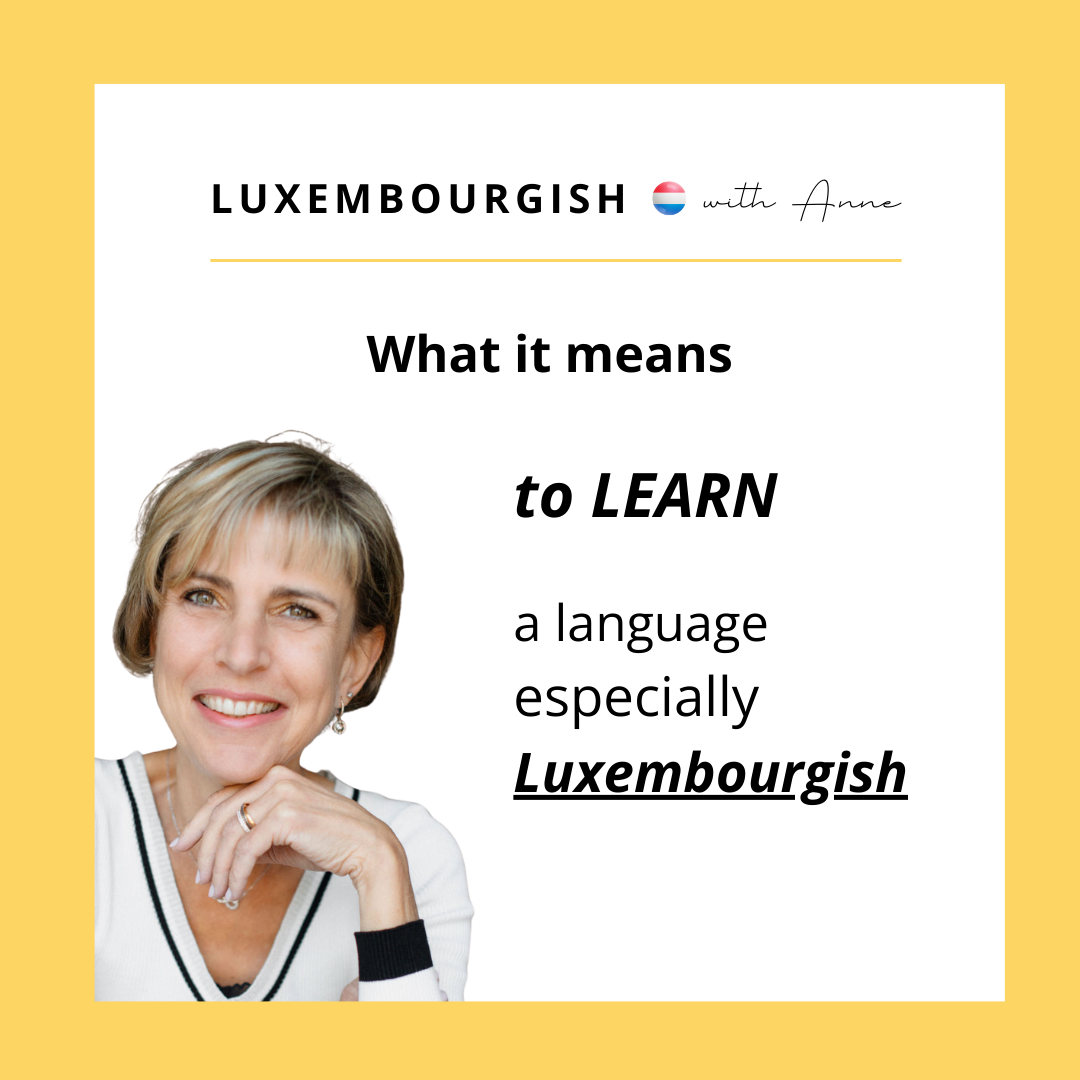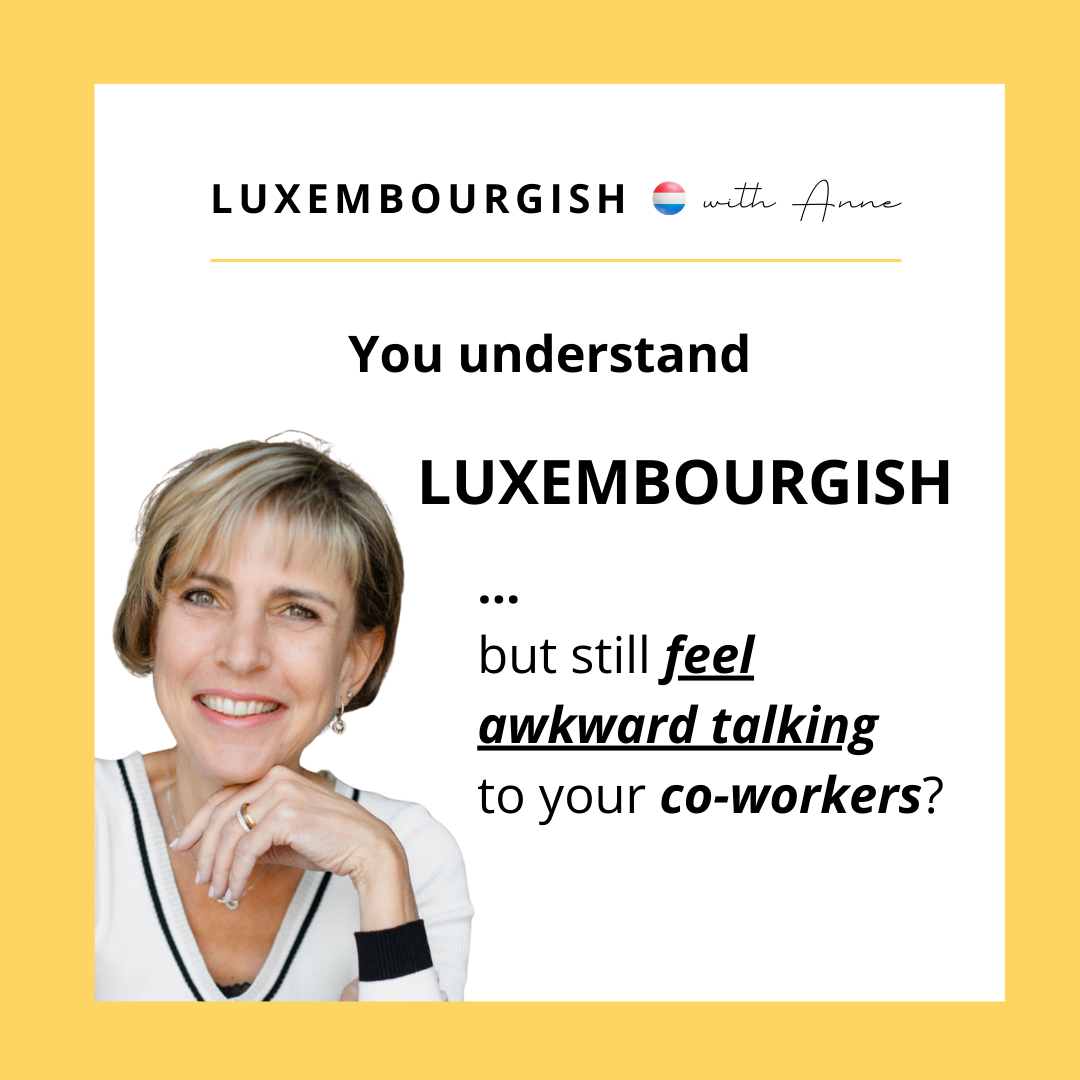In today’s lesson you will learn useful phrases to use in everyday life and which will be very helpful if you intend to take in the upcoming future the Luxembourgish language test called Sproochentest.
Kaffi drénken (to have breakfast)
Hues du scho Kaffi gedronk? Have you (informal) already had breakfast?
Ech hunn nach kee Kaffi gedronk. I haven’t had breakfast yet.
Ech drénken normalerweis géint 7h30 moies Kaffi. I usually have breakfast around 7.30 am.
opstoen (to get up)
Ech muss an der Woch fréi opstoen. I have to get up early during the week.
Ech sinn de Moien um 6 Auer opgestanen. Ech sinn esou midd. I got up at 6 o’clock this morning. I’m so tired.
Wéini stees du sonndes normalerweis op? When do you (informal) usually get up on Sundays?
schaffen (to work)
Muss du muer schaffen? Do you have to work tomorrow?
Jo, ech muss muer de ganzen Dag schaffen. Yes, I have to work the whole day tomorrow.
Am Fréijoer schaffen ech immens gär am Gaart. I really like to garden (to do some gardening) in spring.
mam …. fueren (to go … by / to take)
We talk a lot about transport in our everyday life in Luxembourg. Are we going ride our bike, are we going to take the car or drive by bus, by train etc. In Luxembourgish we often use the construction: mam + Transportmëttel (means of transport) + fueren
Ech fuere mam Bus op d’Schaff. I go by bus to work.
→Literally we are saying: I drive with the Bus to work.
Fiers du mam Zuch oder mam Auto op Paräis? Do you go to Paris by train or by car?
Mir sinn de leschte Weekend fir d’éischt Kéier mam Tram gefuer. We took for the first time the tramway last weekend.
akafe goen (to go shopping, to buy groceries)
Mir gi freides owes ëmmer akafen. We always buy groceries (go to the supermarket) on Friday evenings.
Gitt dir och samschdes an d’Stad akafen? Do you go as well shopping to the city on Saturdays?
mam Hond spadséiere goen (to walk the dog)
Mir ginn owes ëmmer mam Hond spadséieren. We always walk the dog in the evenings.
Wéi oft gees du mam Hond spadséieren? How often do you walk the dog?
Eisen Noper geet bal ni mam Hond spadséieren. Our neighbour almost never walks the dog.
You can listen to this lesson on the “Luxembourgish with Anne podcast” via iTunes or watch the video on youtube.
Wat méchs du …? / Wat maacht Dir….? (What are you doing …?)
Wat méchs du haut den Owend? What are you (informal) doing this evening?
Wat maacht Dir de Weekend? What are you (formal) doing on the (this) weekend?
Wat méchs du haut no der Aarbecht? What do you (informal) do after work today?
an d’ Vakanz fueren / goen (to go on vacation)
Wéi all Joer fueren mir am Juli an Italien an d’Vakanz. Like every year we drive to Italy on vacation in July.
Wuer gitt dir dëst d’Joer an d’Vakanz? Where are you guys going on vacation this year?
Dat ass eng gutt Fro. Mir wëssen dat nach net. That’s a good question. We still don’t know that.
een ofhuelen (to pick someone up)
Ech huele meng Kanner all Dag um 12 Auer an der Schoul of. I pick up my children everyday at noon at school.
Kanns du mech den Owend op der Gare ofhuelen? Can you pick me up at the station this evening?
Kënnt Dir …? / Kanns du …? (Can you ….?)
Kënnt Dir dat widderhuelen, w.e.g.? Can you repeat that, please?
Kanns du mir hëllefen? Can you (informal) help me ?
I hope that this lesson was helpful.
AND
If your Sproochentest is coming up, remember that I offer private lessons for those of you who intend to take the language test to acquire Luxembourgish nationality. In these lessons we are going to focus on the oral expression. You will acquire the necessary vocabulary so to be able to talk with confidence about the most frequently asked topics of the Sproochentest.




